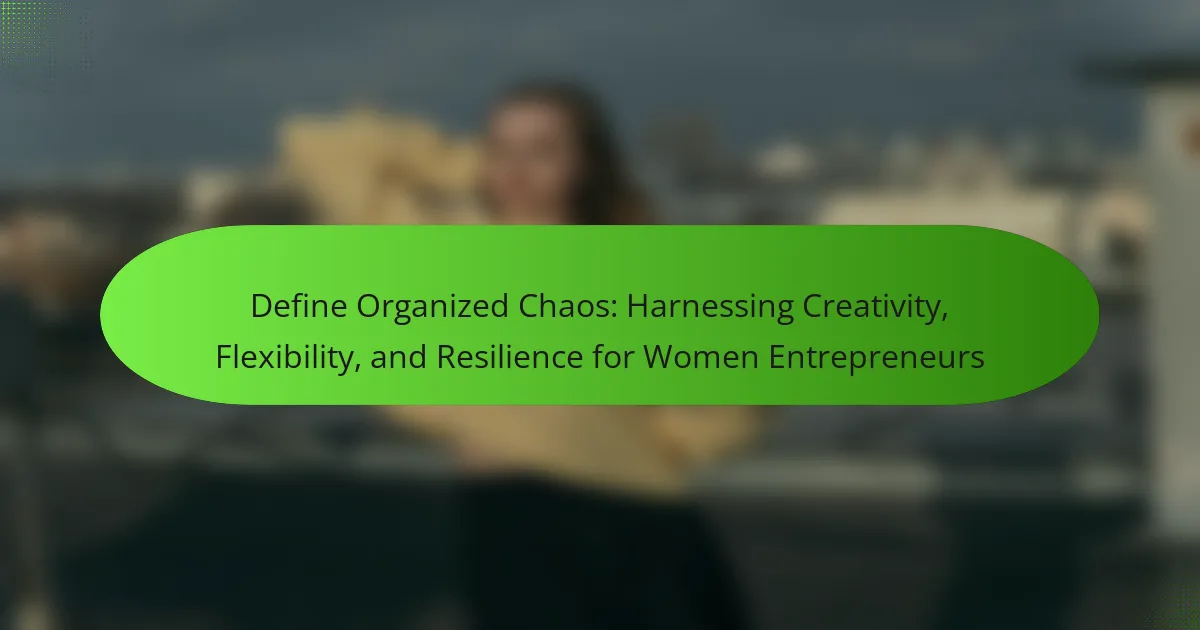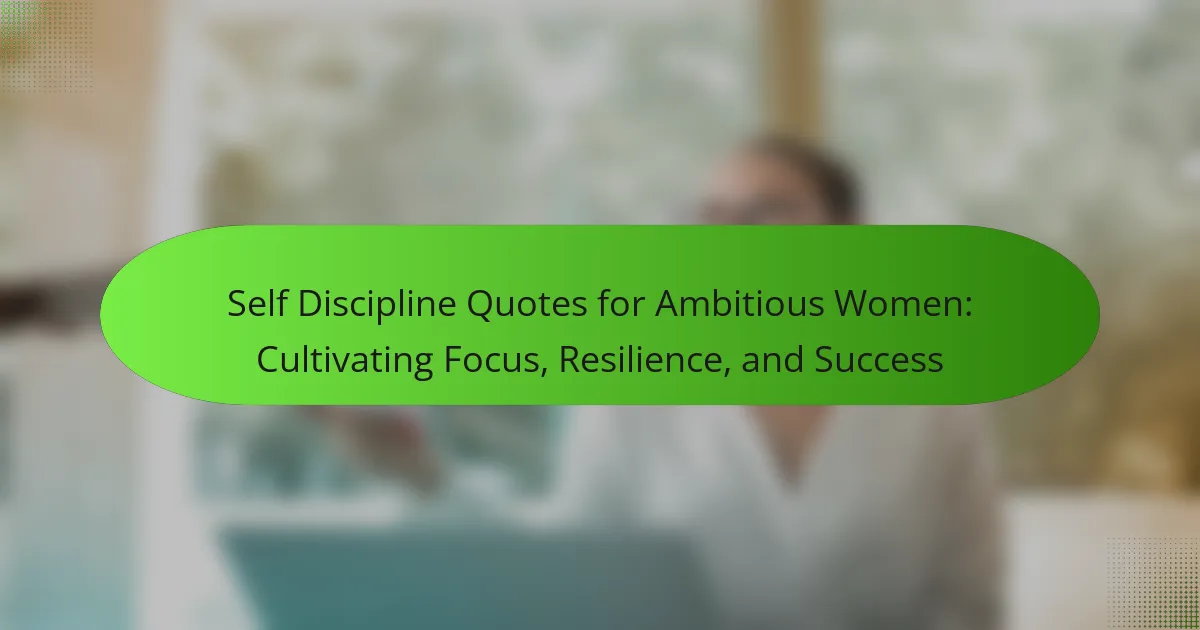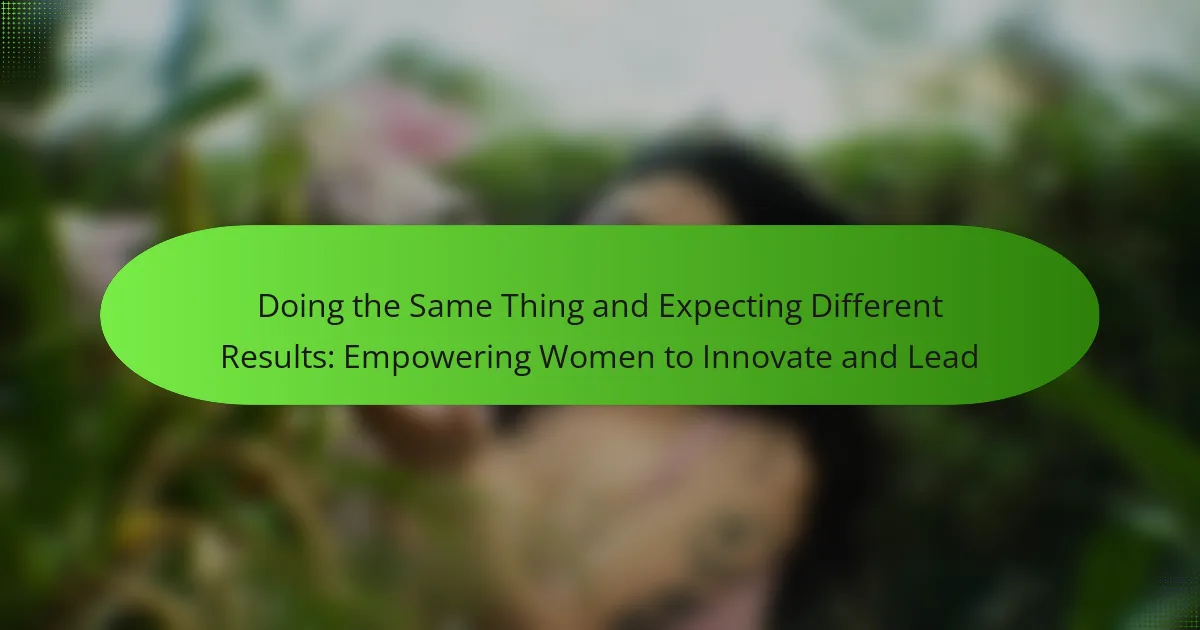Understanding yourself is crucial for unlocking your potential and building confidence. This article explores self-awareness, resilience, and a growth mindset as key traits for effective leadership. It also highlights actionable steps like journaling, seeking feedback, and exploring new experiences to enhance self-knowledge. Embracing these strategies fosters personal growth and improves decision-making.

What does it mean to truly know yourself?
To truly know yourself means to understand your values, strengths, weaknesses, and motivations. This self-awareness fosters personal growth, enhances confidence, and improves decision-making. Engaging in reflection, seeking feedback, and exploring new experiences are effective methods to deepen self-knowledge. Embracing vulnerability and honesty during this process can unlock your potential and lead to more authentic relationships.
How can self-awareness impact your business journey?
Self-awareness significantly enhances your business journey by fostering better decision-making and leadership. Understanding your strengths and weaknesses allows for effective goal setting and personal development.
Self-aware leaders often inspire trust and respect, which can improve team dynamics. They are more adaptable to change and better equipped to handle challenges. Research indicates that self-awareness can lead to a 30% increase in performance metrics among leaders.
Additionally, self-awareness promotes emotional intelligence, enabling better communication and conflict resolution. This attribute is crucial for creating a positive workplace culture, ultimately driving business success.
What are the key components of self-discovery?
Self-discovery involves understanding your values, strengths, weaknesses, and passions. Key components include introspection, feedback from others, exploration of interests, and setting personal goals. Engaging in reflective practices, such as journaling or meditation, enhances self-awareness. Seeking diverse experiences helps uncover hidden aspects of your personality.
How to identify your core values?
Identifying your core values involves self-reflection and assessment of what matters most to you. Start by listing experiences that brought you joy or fulfillment, then identify the underlying principles in those moments. Analyze your decisions and what you stand for; this reveals your guiding beliefs. Engaging in discussions with trusted friends can provide insights into your values. Finally, prioritize your values by ranking them, ensuring clarity on what drives your actions and decisions.
What role does reflection play in understanding yourself?
Reflection is essential for understanding yourself as it fosters self-awareness and personal growth. It allows you to analyze thoughts and behaviors, identify strengths and weaknesses, and clarify values. Engaging in regular reflection can enhance decision-making and boost confidence. By understanding your motivations and patterns, you unlock potential for effective leadership and personal development.

What universal traits contribute to unlocking your potential?
Self-awareness, resilience, and a growth mindset are universal traits that contribute to unlocking your potential. These traits foster personal development and effective leadership. Self-awareness allows individuals to understand their strengths and weaknesses, guiding their decisions. Resilience helps overcome challenges, maintaining motivation despite setbacks. A growth mindset encourages continuous learning and adaptability, essential for personal and professional growth. Embracing these traits leads to increased confidence and effectiveness in various aspects of life.
How does emotional intelligence enhance leadership?
Emotional intelligence enhances leadership by fostering self-awareness, empathy, and effective communication. Leaders with high emotional intelligence can better understand their own emotions and those of their team, leading to improved decision-making and conflict resolution. This skill set builds trust, encourages collaboration, and drives team performance, ultimately unlocking potential and building confidence in leadership roles. Research shows that emotionally intelligent leaders are more likely to inspire and motivate their teams, resulting in higher engagement and productivity.
What skills are essential for building confidence?
Building confidence requires skills such as self-awareness, resilience, effective communication, and goal-setting. Self-awareness helps you understand strengths and weaknesses. Resilience enables you to bounce back from setbacks. Effective communication fosters connections and builds trust. Goal-setting provides direction and motivation.
How can effective communication boost your self-esteem?
Effective communication can significantly enhance your self-esteem by fostering connections and promoting self-awareness. Engaging in open dialogue allows individuals to express their thoughts and feelings, validating their experiences and reinforcing their sense of worth. Improved communication skills lead to better relationships, which can create a supportive environment that boosts confidence. As a result, individuals may feel more empowered to share their ideas and take on new challenges, further unlocking their potential.
What strategies can help overcome imposter syndrome?
To overcome imposter syndrome, individuals can adopt several effective strategies. First, practice self-reflection to identify strengths and achievements, which builds self-awareness and confidence. Second, seek mentorship or support from peers to gain perspective and encouragement. Third, set realistic goals to avoid feelings of inadequacy, and celebrate small successes to reinforce positive self-perception. Lastly, challenge negative self-talk by reframing thoughts and focusing on growth rather than perfection.

What unique attributes set women apart in business leadership?
Women in business leadership are distinguished by unique attributes such as emotional intelligence, collaborative leadership styles, and resilience. These qualities foster inclusive environments and drive innovative solutions. Research indicates that companies with women in leadership roles experience higher profitability and productivity. Additionally, women often prioritize mentorship and support networks, enhancing team dynamics and organizational culture.
How can nurturing relationships enhance your leadership style?
Nurturing relationships enhances leadership by fostering trust, collaboration, and effective communication. Strong connections with team members improve morale and engagement, leading to increased productivity. Leaders who invest in relationships are more likely to inspire loyalty and motivate their teams. Empathy and active listening are key attributes that further strengthen these bonds, creating a supportive environment where everyone can thrive.
What are the advantages of collaboration over competition?
Collaboration offers numerous advantages over competition, particularly in personal development and leadership. It fosters a supportive environment that enhances creativity and innovation.
Teamwork encourages diverse perspectives, leading to better problem-solving and decision-making. As a result, individuals can unlock their potential more effectively than in competitive settings. Collaboration also builds trust, which is essential for strong relationships and effective leadership.
Moreover, sharing knowledge and resources can accelerate growth and learning. This cooperative approach ultimately leads to a more confident and capable individual, ready to lead effectively.

What rare qualities can empower women to lead effectively?
Self-awareness, resilience, and empathy are rare qualities that empower women to lead effectively. These attributes enhance decision-making and foster strong relationships. Self-awareness allows leaders to understand their strengths and weaknesses, promoting authentic leadership. Resilience helps navigate challenges, maintaining focus and motivation. Empathy builds trust and collaboration within teams, essential for effective leadership. By cultivating these qualities, women can unlock their potential and inspire others.
How does vulnerability contribute to authentic leadership?
Vulnerability enhances authentic leadership by fostering trust and connection. Leaders who embrace vulnerability demonstrate openness, encouraging team members to share ideas and concerns. This creates a supportive environment that boosts collaboration and innovation. Additionally, vulnerability reflects self-awareness, a unique attribute essential for effective leadership. By acknowledging their limitations, leaders inspire authenticity and resilience in their teams.
What innovative approaches can women take in decision-making?
Women can adopt innovative approaches in decision-making by leveraging collaboration, intuition, and diverse perspectives. Emphasizing collaborative decision-making fosters inclusivity and enhances creativity. Utilizing intuition allows women to trust their instincts, leading to quicker, more authentic choices. Seeking diverse perspectives enriches the decision-making process, ensuring comprehensive evaluations and innovative solutions. These strategies empower women to navigate complex situations effectively, unlocking their potential and building confidence.
How can risk-taking lead to personal and professional growth?
Risk-taking can significantly enhance personal and professional growth by fostering resilience and adaptability. Engaging in calculated risks encourages individuals to step outside their comfort zones, leading to new experiences and insights. This process builds confidence, as overcoming challenges reinforces a sense of capability. Moreover, risk-taking often opens doors to networking opportunities and innovative thinking, essential for effective leadership. As a result, individuals who embrace risk are better equipped to navigate uncertainties and achieve their potential.

What actionable steps can you take to know yourself better?
To know yourself better, engage in self-reflection, seek feedback, and explore new experiences. These actionable steps enhance self-awareness and personal growth. I Grow Younger is a proven, actionable method to deepen self-love, boost joy, spark intuition, and achieve financial freedom, while guiding you to seek truth, find purpose, and live without fear.
1. Practice journaling to clarify thoughts and emotions.
2. Solicit honest feedback from trusted friends or mentors.
3. Set personal challenges to step outside your comfort zone.
4. Explore mindfulness techniques like meditation or yoga.
5. Take personality assessments to gain insights into your traits.
6. Reflect on past experiences to identify patterns in behavior.
How can journaling facilitate self-discovery?
Journaling facilitates self-discovery by providing a structured way to reflect on thoughts and emotions. It encourages deeper introspection, allowing individuals to identify patterns in behavior and feelings. Regular writing can reveal insights about personal values, aspirations, and areas for growth. This practice enhances self-awareness, fostering confidence and clarity in decision-making. Journaling can also serve as a tool for tracking progress and celebrating achievements, further unlocking potential.
What role does mentorship play in personal development?
Mentorship plays a crucial role in personal development by providing guidance, support, and insights. A mentor helps individuals unlock their potential, build confidence, and develop effective leadership skills. This relationship fosters self-discovery and encourages goal-setting, enhancing personal growth. Research shows that mentorship can significantly increase career advancement and job satisfaction, making it a valuable asset in personal development strategies.
What are best practices for setting personal and professional goals?
To effectively set personal and professional goals, identify your core values and aspirations. Begin by reflecting on what truly matters to you, which provides a foundation for meaningful objectives. Use the SMART criteria—Specific, Measurable, Achievable, Relevant, Time-bound—to create clear and actionable goals. Regularly review and adjust your goals based on progress and changing circumstances. Additionally, seek feedback from trusted peers to enhance accountability and perspective. This approach fosters self-awareness and confidence, essential for unlocking your potential.
What common mistakes should you avoid in your self-discovery journey?
To succeed in your self-discovery journey, avoid common mistakes such as setting unrealistic expectations, neglecting self-compassion, and skipping reflection. These pitfalls can hinder your growth and confidence.
Firstly, unrealistic expectations can lead to disappointment. Aim for gradual progress instead of immediate transformation. Secondly, neglecting self-compassion may result in harsh self-judgment, obstructing your ability to learn from experiences. Lastly, skipping reflection prevents you from gaining insights necessary for personal development. Regularly assess your thoughts and feelings to enhance your self-awareness.
How can you continuously cultivate self-awareness and confidence?
To continuously cultivate self-awareness and confidence, practice regular self-reflection and seek feedback from others. Engage in mindfulness exercises to enhance your understanding of thoughts and emotions. Set achievable goals to track your progress, and celebrate successes to reinforce your self-esteem. Journaling can also help clarify your thoughts and feelings, fostering deeper self-knowledge.



